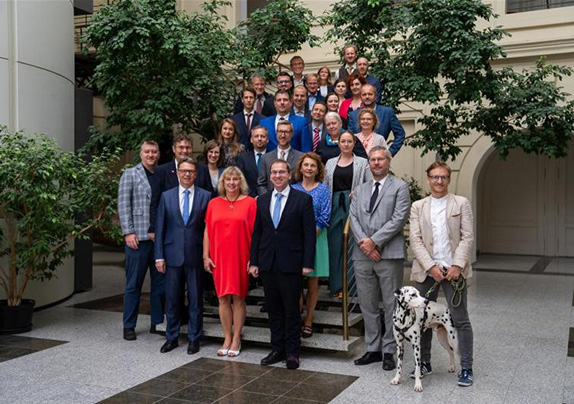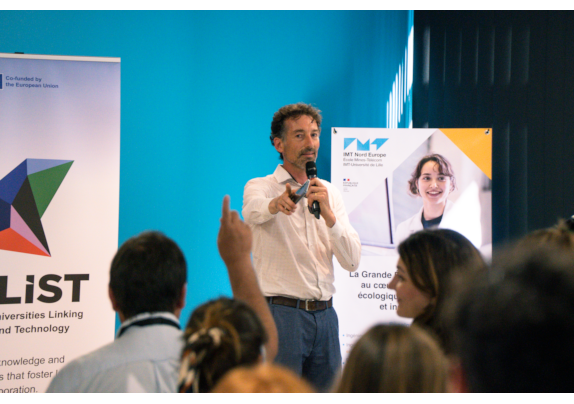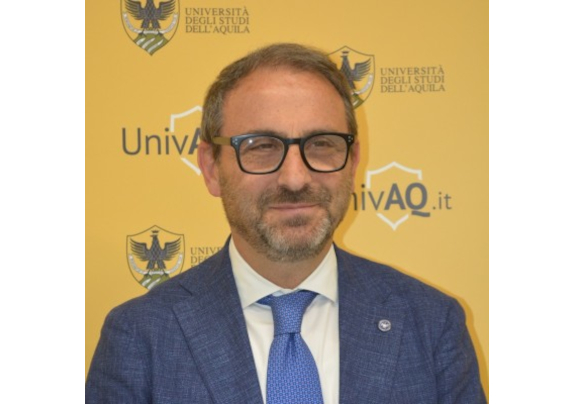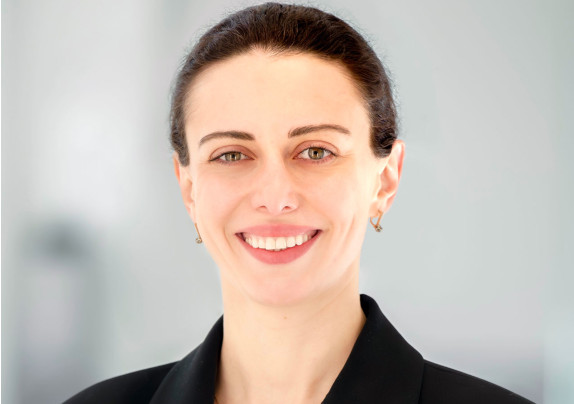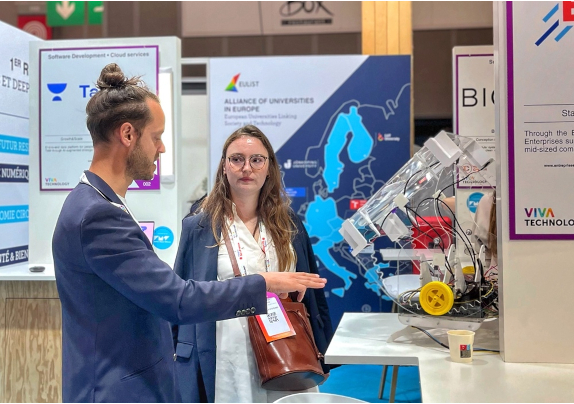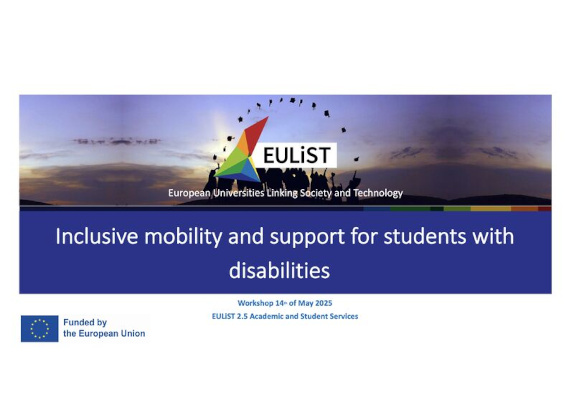Leibniz Universität Hannover visited BUT: EULiST offers many opportunities
On 15 September, the Brno University of Technology (BUT) hosted a meeting of the partners of the European University Alliance EULiST. Rector of the BUT Ladislav Janíček welcomed the chairman of the board of the alliance and also the president of Leibniz Universität Hannover (LUH) Volker Epping and his coordinating team. The eve of the meeting was also enriched by the visit of the incoming Rector of the Technical University of Vienna, Jens Schneider. The meeting was a follow-up to the previous meeting of rectors and representatives of the two universities in Hannover in May 2023. The agenda included joint and bilateral discussions on cooperation opportunities in the fields of education, research or sustainable technologies. The guests from LUH also learned about the functioning of the CEITEC BUT university institute and toured the CEITEC Nano clean room laboratories.
The EULiST Alliance, which brings together 10 European universities with 200,000 students, recently succeeded in a call by the European Commission to become a European University. This result, which the President Epping mentioned at the beginning of the meeting, is proof of the joint strength of 10 universities: “We have achieved great success and received financial support that will allow us to strengthen our cooperation, for example in the development of innovative learning opportunities. It confirmed the importance of moving forward together, pursuing our vision and also asking ourselves where we want to be as partners in ten years’ time.”
Volker Epping pointed out some of the other opportunities for alliance cooperation. One is the removal of barriers and the creation of motivational conditions for student mobility within partner universities. The vision is one university campus made up of all members of the alliance for all its students. Science and research also offer a number of opportunities. Closer cooperation in this area can, among other things, contribute to readiness for EU project calls.
During his presentation, Epping also raised some unfavorable phenomena such as the decline in interest in technical education: ‘LUH has 28,000 students, but the number of people interested in mechanical or civil engineering is declining, while interest in computer science is growing. However, our society needs engineers. So we need to go into the schools and also motivate the parents of children, where it all starts.”
BUT has had a similar experience with a decline in interest in technical education. Rector Ladislav Janíček believes that cooperation within the alliance can be beneficial in this respect as well: ‘We are systematically addressing this issue at the BUT and we are well aware that this is a Europe-wide problem that affects Europe’s competitiveness and increases its dependence. Sharing international models and experiences with our partner technical universities, and therefore also with our partners in the EULiST alliance, is one of the ways that can help to change the situation.”
After the bilateral meetings of faculty partners from, for example, civil or electrical engineering disciplines and a visit to the CEITEC BUT laboratories, a final evaluation meeting was held. Rector of BUT Ladislav Janíček emphasized that besides common goals, cooperation in EULiST should also be about mutual support in achieving own goals at home universities.
Opportunities for this could include mutual coordination of selected practices, sharing and transfer of good practices and formulation of conceptual principles and approaches to address certain common themes, on which the individual partner universities can rely: “We have common themes such as promoting interest in technical fields, the development of sustainable technologies or even university management, and it is always inspiring to see how our partners are tackling similar topics. However, it is also important to take advantage of opportunities for bilateral cooperation and it is logical that the geographical and cultural proximity of some partners reflecting regional development opportunities will play a role in the cooperation,” said Janíček.
The Rector of the BUT also reminded that the next General Assembly of the EULiST Alliance will be held in May 2024 in Brno under the auspices of the BUT.
Leibniz Universität Hannover was founded in 1831 and has grown from a purely technical university to a university that also offers courses in the humanities and economics. Since 2006 it has been named after the famous German philosopher and mathematician G. W. Leibniz. LUH offers studies at 12 faculties with 28,000 students. In addition to the EULiST alliance, it is part of the CESAER or TU9 alliances. LUH’s research focuses on optical technology, biomedical or product engineering, among others. Currently, 18 ERC projects are underway at LUH.
More info and photos here

